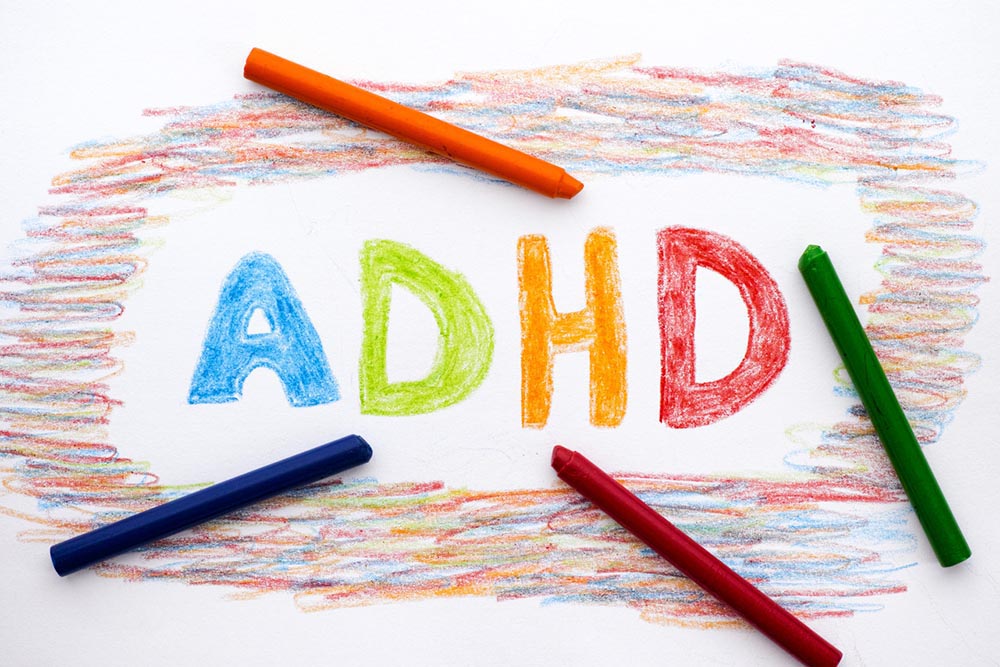ADHD Is a Nutritional Problem Not a Mental One

Keto Strategy Tips
Expert advice on maintaining a successful keto lifestyle
Learn simple strategies to overcome common challenges and stay on track
Stay motivated with tips and techniques to keep you focused on your keto journey
Practical cutout wallet guide for quick reference on keto-friendly choices and strategies

Keto Strategy Tips
Expert advice on maintaining a successful keto lifestyle
Learn simple strategies to overcome common challenges and stay on track
Stay motivated with tips and techniques to keep you focused on your keto journey
Practical cutout wallet guide for quick reference on keto-friendly choices and strategies

Keto Strategy Tips
Expert advice on maintaining a successful keto lifestyle
Learn simple strategies to overcome common challenges and stay on track
Stay motivated with tips and techniques to keep you focused on your keto journey
Practical cutout wallet guide for quick reference on keto-friendly choices and strategies

Keto Strategy Tips
Expert advice on maintaining a successful keto lifestyle
Learn simple strategies to overcome common challenges and stay on track
Stay motivated with tips and techniques to keep you focused on your keto journey
Practical cutout wallet guide for quick reference on keto-friendly choices and strategies

Keto Strategy Tips
Expert advice on maintaining a successful keto lifestyle
Learn simple strategies to overcome common challenges and stay on track
Stay motivated with tips and techniques to keep you focused on your keto journey
Practical cutout wallet guide for quick reference on keto-friendly choices and strategies

Keto Strategy Tips
Expert advice on maintaining a successful keto lifestyle
Learn simple strategies to overcome common challenges and stay on track
Stay motivated with tips and techniques to keep you focused on your keto journey
Practical cutout wallet guide for quick reference on keto-friendly choices and strategies

Keto Strategy Tips
Expert advice on maintaining a successful keto lifestyle
Learn simple strategies to overcome common challenges and stay on track
Stay motivated with tips and techniques to keep you focused on your keto journey
Practical cutout wallet guide for quick reference on keto-friendly choices and strategies

Keto Strategy Tips
Expert advice on maintaining a successful keto lifestyle
Learn simple strategies to overcome common challenges and stay on track
Stay motivated with tips and techniques to keep you focused on your keto journey
Practical cutout wallet guide for quick reference on keto-friendly choices and strategies

Keto Strategy Tips
Expert advice on maintaining a successful keto lifestyle
Learn simple strategies to overcome common challenges and stay on track
Stay motivated with tips and techniques to keep you focused on your keto journey
Practical cutout wallet guide for quick reference on keto-friendly choices and strategies

Keto Strategy Tips
Expert advice on maintaining a successful keto lifestyle
Learn simple strategies to overcome common challenges and stay on track
Stay motivated with tips and techniques to keep you focused on your keto journey
Practical cutout wallet guide for quick reference on keto-friendly choices and strategies

Keto Strategy Tips
Expert advice on maintaining a successful keto lifestyle
Learn simple strategies to overcome common challenges and stay on track
Stay motivated with tips and techniques to keep you focused on your keto journey
Practical cutout wallet guide for quick reference on keto-friendly choices and strategies

Keto Strategy Tips
Expert advice on maintaining a successful keto lifestyle
Learn simple strategies to overcome common challenges and stay on track
Stay motivated with tips and techniques to keep you focused on your keto journey
Practical cutout wallet guide for quick reference on keto-friendly choices and strategies

Keto Strategy Tips
Expert advice on maintaining a successful keto lifestyle
Learn simple strategies to overcome common challenges and stay on track
Stay motivated with tips and techniques to keep you focused on your keto journey
Practical cutout wallet guide for quick reference on keto-friendly choices and strategies

Keto Strategy Tips
Expert advice on maintaining a successful keto lifestyle
Learn simple strategies to overcome common challenges and stay on track
Stay motivated with tips and techniques to keep you focused on your keto journey
Practical cutout wallet guide for quick reference on keto-friendly choices and strategies

Keto Strategy Tips
Expert advice on maintaining a successful keto lifestyle
Learn simple strategies to overcome common challenges and stay on track
Stay motivated with tips and techniques to keep you focused on your keto journey
Practical cutout wallet guide for quick reference on keto-friendly choices and strategies

Keto Strategy Tips
Expert advice on maintaining a successful keto lifestyle
Learn simple strategies to overcome common challenges and stay on track
Stay motivated with tips and techniques to keep you focused on your keto journey
Practical cutout wallet guide for quick reference on keto-friendly choices and strategies

Keto Strategy Tips
Expert advice on maintaining a successful keto lifestyle
Learn simple strategies to overcome common challenges and stay on track
Stay motivated with tips and techniques to keep you focused on your keto journey
Practical cutout wallet guide for quick reference on keto-friendly choices and strategies

Keto Strategy Tips
Expert advice on maintaining a successful keto lifestyle
Learn simple strategies to overcome common challenges and stay on track
Stay motivated with tips and techniques to keep you focused on your keto journey
Practical cutout wallet guide for quick reference on keto-friendly choices and strategies

Keto Strategy Tips
Expert advice on maintaining a successful keto lifestyle
Learn simple strategies to overcome common challenges and stay on track
Stay motivated with tips and techniques to keep you focused on your keto journey
Practical cutout wallet guide for quick reference on keto-friendly choices and strategies

Keto Strategy Tips
Expert advice on maintaining a successful keto lifestyle
Learn simple strategies to overcome common challenges and stay on track
Stay motivated with tips and techniques to keep you focused on your keto journey
Practical cutout wallet guide for quick reference on keto-friendly choices and strategies

Keto Strategy Tips
Expert advice on maintaining a successful keto lifestyle
Learn simple strategies to overcome common challenges and stay on track
Stay motivated with tips and techniques to keep you focused on your keto journey
Practical cutout wallet guide for quick reference on keto-friendly choices and strategies

Beginner’s Guide to Healthy Keto & Intermittent Fasting
Receive a step-by-step guide to starting Healthy Keto® and intermittent fasting
Learn about foundational principles and best practices for beginners
Get detailed visual guidance on portion sizes and meal composition
Discover how to set achievable goals and monitor your progress
Find practical tips for overcoming common challenges and staying motivated

Beginner’s Guide to Healthy Keto & Intermittent Fasting
Receive a step-by-step guide to starting Healthy Keto® and intermittent fasting
Learn about foundational principles and best practices for beginners
Get detailed visual guidance on portion sizes and meal composition
Discover how to set achievable goals and monitor your progress
Find practical tips for overcoming common challenges and staying motivated

Beginner’s Guide to Healthy Keto & Intermittent Fasting
Receive a step-by-step guide to starting Healthy Keto® and intermittent fasting
Learn about foundational principles and best practices for beginners
Get detailed visual guidance on portion sizes and meal composition
Discover how to set achievable goals and monitor your progress
Find practical tips for overcoming common challenges and staying motivated

Beginner’s Guide to Healthy Keto & Intermittent Fasting
Receive a step-by-step guide to starting Healthy Keto® and intermittent fasting
Learn about foundational principles and best practices for beginners
Get detailed visual guidance on portion sizes and meal composition
Discover how to set achievable goals and monitor your progress
Find practical tips for overcoming common challenges and staying motivated

Beginner’s Guide to Healthy Keto & Intermittent Fasting
Receive a step-by-step guide to starting Healthy Keto® and intermittent fasting
Learn about foundational principles and best practices for beginners
Get detailed visual guidance on portion sizes and meal composition
Discover how to set achievable goals and monitor your progress
Find practical tips for overcoming common challenges and staying motivated

Beginner’s Guide to Healthy Keto & Intermittent Fasting
Receive a step-by-step guide to starting Healthy Keto® and intermittent fasting
Learn about foundational principles and best practices for beginners
Get detailed visual guidance on portion sizes and meal composition
Discover how to set achievable goals and monitor your progress
Find practical tips for overcoming common challenges and staying motivated

Beginner’s Guide to Healthy Keto & Intermittent Fasting
Receive a step-by-step guide to starting Healthy Keto® and intermittent fasting
Learn about foundational principles and best practices for beginners
Get detailed visual guidance on portion sizes and meal composition
Discover how to set achievable goals and monitor your progress
Find practical tips for overcoming common challenges and staying motivated

Beginner’s Guide to Healthy Keto & Intermittent Fasting
Receive a step-by-step guide to starting Healthy Keto® and intermittent fasting
Learn about foundational principles and best practices for beginners
Get detailed visual guidance on portion sizes and meal composition
Discover how to set achievable goals and monitor your progress
Find practical tips for overcoming common challenges and staying motivated

Beginner’s Guide to Healthy Keto & Intermittent Fasting
Receive a step-by-step guide to starting Healthy Keto® and intermittent fasting
Learn about foundational principles and best practices for beginners
Get detailed visual guidance on portion sizes and meal composition
Discover how to set achievable goals and monitor your progress
Find practical tips for overcoming common challenges and staying motivated

Beginner’s Guide to Healthy Keto & Intermittent Fasting
Receive a step-by-step guide to starting Healthy Keto® and intermittent fasting
Learn about foundational principles and best practices for beginners
Get detailed visual guidance on portion sizes and meal composition
Discover how to set achievable goals and monitor your progress
Find practical tips for overcoming common challenges and staying motivated

Beginner’s Guide to Healthy Keto & Intermittent Fasting
Receive a step-by-step guide to starting Healthy Keto® and intermittent fasting
Learn about foundational principles and best practices for beginners
Get detailed visual guidance on portion sizes and meal composition
Discover how to set achievable goals and monitor your progress
Find practical tips for overcoming common challenges and staying motivated

Beginner’s Guide to Healthy Keto & Intermittent Fasting
Receive a step-by-step guide to starting Healthy Keto® and intermittent fasting
Learn about foundational principles and best practices for beginners
Get detailed visual guidance on portion sizes and meal composition
Discover how to set achievable goals and monitor your progress
Find practical tips for overcoming common challenges and staying motivated

Beginner’s Guide to Healthy Keto & Intermittent Fasting
Receive a step-by-step guide to starting Healthy Keto® and intermittent fasting
Learn about foundational principles and best practices for beginners
Get detailed visual guidance on portion sizes and meal composition
Discover how to set achievable goals and monitor your progress
Find practical tips for overcoming common challenges and staying motivated

Beginner’s Guide to Healthy Keto & Intermittent Fasting
Receive a step-by-step guide to starting Healthy Keto® and intermittent fasting
Learn about foundational principles and best practices for beginners
Get detailed visual guidance on portion sizes and meal composition
Discover how to set achievable goals and monitor your progress
Find practical tips for overcoming common challenges and staying motivated

Beginner’s Guide to Healthy Keto & Intermittent Fasting
Receive a step-by-step guide to starting Healthy Keto® and intermittent fasting
Learn about foundational principles and best practices for beginners
Get detailed visual guidance on portion sizes and meal composition
Discover how to set achievable goals and monitor your progress
Find practical tips for overcoming common challenges and staying motivated

Beginner’s Guide to Healthy Keto & Intermittent Fasting
Receive a step-by-step guide to starting Healthy Keto® and intermittent fasting
Learn about foundational principles and best practices for beginners
Get detailed visual guidance on portion sizes and meal composition
Discover how to set achievable goals and monitor your progress
Find practical tips for overcoming common challenges and staying motivated

Beginner’s Guide to Healthy Keto & Intermittent Fasting
Receive a step-by-step guide to starting Healthy Keto® and intermittent fasting
Learn about foundational principles and best practices for beginners
Get detailed visual guidance on portion sizes and meal composition
Discover how to set achievable goals and monitor your progress
Find practical tips for overcoming common challenges and staying motivated

Beginner’s Guide to Healthy Keto & Intermittent Fasting
Receive a step-by-step guide to starting Healthy Keto® and intermittent fasting
Learn about foundational principles and best practices for beginners
Get detailed visual guidance on portion sizes and meal composition
Discover how to set achievable goals and monitor your progress
Find practical tips for overcoming common challenges and staying motivated

Beginner’s Guide to Healthy Keto & Intermittent Fasting
Receive a step-by-step guide to starting Healthy Keto® and intermittent fasting
Learn about foundational principles and best practices for beginners
Get detailed visual guidance on portion sizes and meal composition
Discover how to set achievable goals and monitor your progress
Find practical tips for overcoming common challenges and staying motivated

Beginner’s Guide to Healthy Keto & Intermittent Fasting
Receive a step-by-step guide to starting Healthy Keto® and intermittent fasting
Learn about foundational principles and best practices for beginners
Get detailed visual guidance on portion sizes and meal composition
Discover how to set achievable goals and monitor your progress
Find practical tips for overcoming common challenges and staying motivated
Attention deficit hyperactivity disorder (ADHD) diagnoses are becoming more and more common in children. But are all of these diagnoses really necessary? And are medications the only answer? Or might it be more important to look at ADHD nutrition for the answer?
In this article, I explain why it is so important to look at the diet when it comes to hyperactivity and other behaviors of ADHD. I also discuss some simple steps you can take to help your child find more balance and calm.
In this article:

The ADHD diagnosis hoax
First, let's talk about how attention deficit hyperactivity disorder (ADHD) is diagnosed in children.
In my opinion, these ADHD diagnoses in young kids are a real scam. As you'll see below, the "symptoms" that are included in ADHD diagnosis are really just normal behaviors for most children.
Here is how they would diagnose ADHD in a second grader.
Has trouble getting started on tasks (getting dressed, putting away toys, etc.).
Ignores directions or delays following directions.
Has a hard time sitting during meals.
Fidgets and talks when expected to be quiet.
Has trouble stopping one activity to begin another.
Struggles to slow down enough to do things carefully.
Needs to be reminded a lot to stop and listen.
Has a harder time paying attention.
Grabs things without permission.
Is unable to wait for directions.
Takes too much time to complete tasks.
Has trouble recalling facts they just learned.
Gets upset or annoyed over minor frustrations.
Often leaves the seat in a classroom or other situation when they are supposed to be sitting.
Often runs about and climbs when inappropriate.
Has difficulty playing or engaging in activities quietly.
Is often on the go, as if driven by a motor.
Talks excessively.
Now for all you parents out there, how many of these items are out of the ordinary for any child? This list of ADHD criteria are all behaviors that can be completely normal for a second-grade child.
Putting a kid in a seat and expecting them to sit calmly for long periods of time is not natural. Nor is it natural to expect them to play quietly or not talk too much.
If we keep telling kids to be quiet, slow down, stop, and wait, then we are going to cause problems. We just aren't being realistic about what "normal" is for a child.

Far too often, kids with these behaviors get labeled with ADHD, and then they are just put on ADHD drugs. If you want to read more about this issue, I recommend the book The Hyperactivity Hoax by Sydney Walker, M.D.
Ultimately, I believe the ADHD diagnosis for kids is a scam.
But for some kids, I do think these kinds of behaviors can become a little more common. And sometimes they can raise some problems.
So, when hyperactivity behaviors become excessive, what can we do to help our kids find a little more balance?
We need to look to the diet.
The link between ADHD and nutrition
For kids who experience more hyperactivity than others, I believe the answer lies in the diet. If their nutrition could be improved, in most cases their behaviors would improve as well.
Psychologists never look at the diet, but it can be a very powerful tool.
In my opinion, ADHD is a nutritional issue, not a mental issue. If we address the diet and make some simple changes, then things can vastly improve.
Nutrition can affect brain functioning and ADHD for many reasons. These reasons include:
Brain cells and neurotransmitters require nutrients from the diet to function properly.
Vitamins and minerals can help calm the nervous system. They can also promote healthy cognitive function.
Certain dietary patterns deplete your body of the nutrients your brain needs to stay healthy.
Blood sugar swings impact mood, energy levels, irritability, concentration, and more.
Certain foods and additives can be toxic and result in symptoms.
ADHD symptoms are related to brain activity being a bit out of whack and imbalanced. So addressing nutrition can be a very effective way to calm things down and bring things back into balance for your child.
Below, I explain 5 simple dietary shifts you can try to support your child in finding more calm.
5 Dietary changes that can help ADHD symptoms
1. Add in vitamin B1.
Adding vitamin B1 is the number one thing you can do to help with ADHD nutrition.
Low levels of vitamin B1 are associated with restlessness, mind racing, irritability, sleep problems, distraction, and inability to learn. Sound a lot like ADHD symptoms? Correcting a vitamin B1 deficiency will help your child
B1 in the form of nutritional yeast is a great option for kids. You can blend it with some peanut butter or even low-sugar chocolate. Or, try mixing it into apple sauce.
2. Get your child off sugar and refined carbs.
Sugar and refined carbohydrates like bread products make up a big part of the diet for a lot of ADHD children.
Unfortunately, sugar and refined carbs deplete your body of the nutrients the brain needs to stay healthy. So even if you are adding in healthy vitamins and minerals, it won't be of any use unless you also cut out sugar.
Sugar intake also leads to big swings in blood sugar, which will affect mood, energy levels, and so much else.
So you need to get your kid off sugar. Keep it out of the house. In its place, try making some awesome low-carb treats that are sugar-free. Kids won't know the difference between those and sugar-filled desserts. Try these keto dessert recipes. Or check out my Ketogenic Desserts recipe book for ideas.
3. Include potassium-rich vegetables.
Potassium is a mineral that can really calm down nervous system activity. It helps boost cognitive function, improving symptoms that may seem like ADHD.
The key here is to find a vegetable that your child likes. Veggies with a lot of potassium include spinach, kale, beet tops, avocado, and squash.
If you have a hard time getting your kid to eat vegetables, try a kale shake. Add in some banana or other fruit to cover up the flavor, and your kid will love it. This is a great way to give your hyperactive children a whole bunch of potassium.

4. Avoid food additives.
Processed foods are full of food additives and chemicals. From preservatives to food dyes to artificial flavors, these things can be really toxic to the body and brain. And your child may also have food allergies or hypersensitivities to these chemicals. That can manifest as behavioral issues.
Eliminate junk foods. Read labels and look for things like food colorings, MSG, preservatives, and more.
5. Try magnesium.
Like potassium, magnesium is another mineral that essentially acts as a brake for the nervous system. It slows things down and brings calm.
A magnesium deficiency can lead to many symptoms. These include hyper-irritability, memory issues, and learning problems. Again, does this sound familiar? Maybe like symptoms of ADHD?
You'll want to boost magnesium levels for your child. Try a good quality supplement for kids (liquid ones work well). Or, make magnesium-rich foods a bigger part of the diet. Choose leafy greens, avocados, almonds, pumpkin seeds, and even dark chocolate.
More to consider
There are also other nutrients that may be useful for ADHD behaviors. These include:
Other B vitamins.
B6, B12, and B3 are also good for the brain.
Vitamin D.
Low vitamin D can lead to memory problems and rage, for example.
Omega-3 fatty acids and fish oil.
Omega-3 fatty acids are key to brain health.
The bottom line on ADHD and nutrition
I don't believe that ADHD is a mental health problem, but rather a nutritional issue.
The criteria to diagnose ADHD is a hoax. If we labeled every kid who couldn't sit still, play quietly, or follow directions perfectly as ADHD and then put them on meds, almost every kid would be medicated.
I don't think this is the answer. Instead, I think that when certain behaviors are present, we should look to the diet. We must consider how a healthy diet might be able to help.
So if your child has hyperactive behaviors, try making some nutritional changes.
As a review, these are my top tips.
Increase vitamin B1.
Cut out sugar.
Boost potassium.
Avoid food additives.
Add in more magnesium.
You may also choose to add in B vitamins, vitamin D, and omega-3 fatty acids.
Behaviors labeled as ADHD symptoms may actually have nutritional deficiencies at the root. So address these issues, get your child the vitamins and minerals they need, and avoid harmful foods like sugars and processed foods.
Do you have any experience using nutrition for ADHD behaviors? Share your thoughts in the comments below.
Up Next:
Previous blog
Understanding Net Carbs Ketogenic DietNext blog
Genetic High CholesterolTags

Popular
08/21/2024
43.4K views
05/22/2024
39K views
11/18/2024
227.3K views
03/18/2024
11/21/2022




